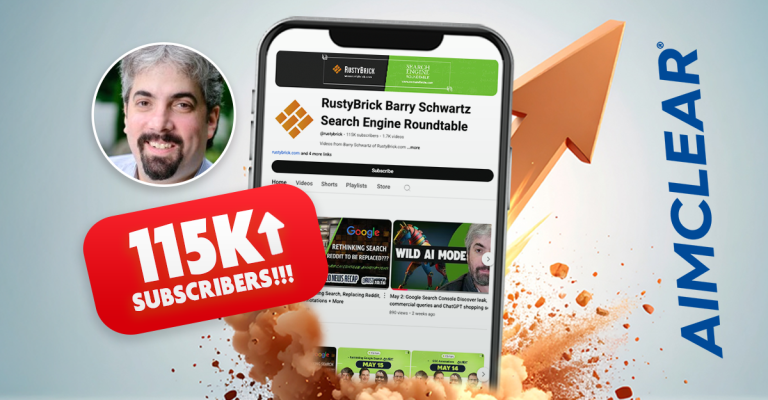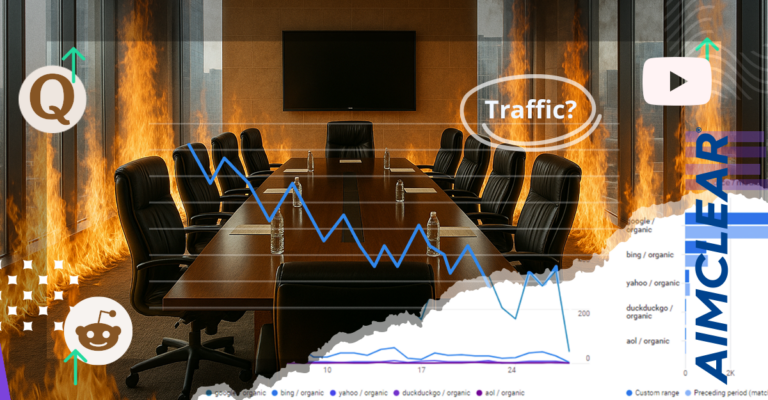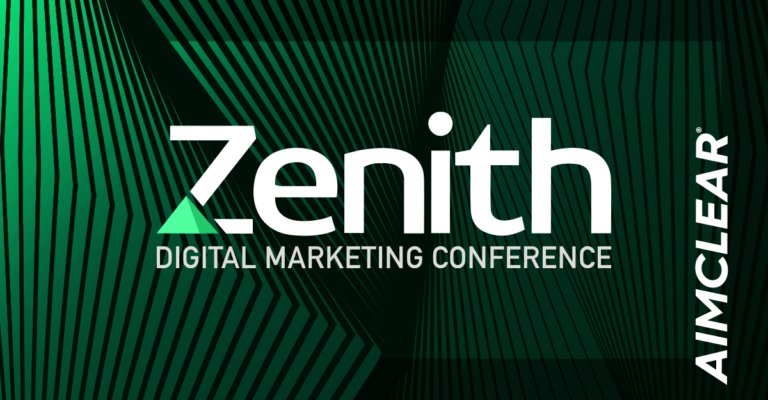 Todd Malicoat, AKA StuntDubl, has created a legendary brand among search marketing insiders and needs little introduction. I first had the pleasure of watching him present “Digg pointers” along with Neil Patel at SES Chicago 2006 and was immediately engaged by his no-shit high-integrity approach to content, link building, making friends, sharing, and building his own brand. This guy is a true search marketing artist.
Todd Malicoat, AKA StuntDubl, has created a legendary brand among search marketing insiders and needs little introduction. I first had the pleasure of watching him present “Digg pointers” along with Neil Patel at SES Chicago 2006 and was immediately engaged by his no-shit high-integrity approach to content, link building, making friends, sharing, and building his own brand. This guy is a true search marketing artist.
StuntDubl was an early SEM blogger, linkbaiter and foundational search marketing practitioner. With recent posts like “The SEO Playbook – Welcome to the Rabbit Hole Alice,” Todd is still quietly active in the blogging community as he builds companies, speaks at search marketing shows, and selectively services clients.
Recently I interviewed him by phone. We talked about linking, search marketing, StumbleUpon, his early Digg days, vetting SEM firms, starting an SEO career, and other practical topics. You’re invited to listen to the MP3 and read the full transcript. This is a must-listen for anyone considering a career in search marketing and seasoned veterans alike.
Marty: Todd, you’re one of the most respected link baiters in the world. I’m curious as to how you got your start in social network link building and if you have any anecdotes regarding your background and early viral successes.
Todd: The first time I did that vanity search for my own name and went out and found my own resume out there online, you know my resume had my name, phone number, home address, everything else, and I went, “Oh well, I guess that’s so much for privacy,” and so I kind of took the proactive approach to it. So as much as my name is out there and everything else, it really wasn’t an accident of, I was pretty much a shameless whore with it, with promoting myself and just always putting content out, you know. Like this year, you know, always being willing to do an interview or talk with someone or record some content here and there. So that’s really kind of how from a personal perspective I got involved in the social networking aspect of the web in general, just kind of within the Internet marketing community, and just really getting to know people and having conversations with people, and like you were saying earlier before we started recording, it’s just kind of a very cool community full of all kinds of interesting people, and the fact that you get to know those people and then how it works, it’s really a pretty amazing thing.
Marty: What was the first actual link bait content you ever blew out on the Internet, Todd?
Todd: Yeah, I really always did it as the SEO thing, and I guess I didn’t even think of it as link bait at the time as much, so it was more really just writing posts about SEO before there was a whole lot of SEO bloggers, I guess. And that came from, I went to a webmaster world show and realized that everybody just knew my screen name and webmaster world where I had been posting and such, so that then became the blog, and then just continues to write there, and it wasn’t so much where it is now of specifically saying I’m going to craft a piece of content to go out and get some links, it was more just writing about, I guess it was a little more authentic at that point —
Marty: Mm hmm.
Todd: — but it wasn’t specifically geared to draw links –
Marty: Huh.
Todd: — and it wasn’t quite as outrageous and, not even outrageous but just, uh –
Marty: Hyperbolic.
Todd: Yeah, yeah. It wasn’t explicitly for links, it just kind of naturally did that, and I think in ways I’ve really, you know, shot myself in the foot there, you know, because every time I do do a piece of content or something, it gets called out as link bait now. [laughs] So if I do an exceptional piece of content, you know, it gets called out as link bait all the time, which can be a good or bad thing, I guess, depending on how you’re looking at it, and certainly it is and certainly I love the links. And part of how I got into it was just having, got into link building for so long and knowing how tedious and time consuming, but at the same time valuable it was, the link baiting thing just became a no-brainer of people.
Marty: Right. Do you remember specifically when you began to think, if I could do this for my own SEO, SEM content, I can do it for clients, and I’m going to go out and do it in genres and arenas different from SEO?
Todd: It’s just really only been within the last year and a half that the whole link baiting phenomenon really took off. I’d have to go back and see when the term was kind of coined there. I guess maybe a year and a half, two years ago now. So I think for me it was the first time I saw something really do real well on digg and then just hit digg and it got picked up all over the place. So link baiting, you know, itself has been around for forever, just in, you know, putting out a promotional piece of content and a public relations stunt, or whatever –
Marty: Um hmm.
Todd: — and then attracting publicity. So for me it was just the first time I thought, oh wow, that was pretty easy to get a good piece of content on digg. I just need to figure out how to get more good pieces of content on digg and then just by virtue of looking there it’s going to build, you know, who knows how many links.
Marty: Um hmm.
Todd: So that for me probably was the point, the first time I blogged something and it made it on digg, and I went, whoa, this, that got a whole bunch of links, so that was probably the turnaround point. And then it was creating content for that distribution channel that then got me on that channel to other audiences.
Marty: Are you a Stumbleupon fan, Todd?
Todd: I am. I really haven’t done it as much as I’d like to, but I’ve heard fantastic things and I’ve dabbled with it enough to know that I really should be doing more with it. I —
Marty: Mm hmm.
Todd: — I’ve really seen some cool stuff come out of Stumbleupon and traffic is fantastic from what I’ve seen and some links out of it too.
Marty: A lot has changed in the last two years of content publication on the Internet. What do you see as the fundamental values and techniques that have not changed?
Todd: Probably the hooks, for sure. You know, we deemed them the link baiting hooks, and there’s probably even more than what is out there, you know, that we kind of established. I think Nick Wilson was the first one. There was a debate at some point I think between Nick Wilson and Aaron Wall coining the term link baiting and Nick wrote one of the first posts on building bait hooks, so the resource hook, the attack hook –
Marty: Um hmm.
Todd: — the humor hook, and various different, there’s probably three or four other ones there as well. And those are going to be fundamental. The headlines, I think, is hugely fundamental.
Marty: Mm hmm.
Todd: The one for that, the blog that came out of nowhere, not really out of nowhere, but really has gained tons of notoriety now is copyblogger because he’s such a fantastic copyrighter and he focuses on those same core fundamental elements over and over that are just excellent and worth reviewing constantly.
Marty: It’s clear from your writings that you place an extremely high value on tools and research. After a client engages you to create content designed to attract attention, traffic and links, what process do you typically undergo to establish experts, research partnership opportunities, and explore a topic’s sphere and buzz?
Todd: So I think that’s one of the areas that you just can’t automate. That’s part of what makes SEO special and that, well you know, no matter what big company comes along and creates custom solutions isn’t going to last forever because the research, the most important research, is always going to be done on the bleeding edge of whatever the community is.
Marty: Right.
Todd: So a big part of that is going into the communities and, you know, becoming an inquisitive member of them, and going in as a new person and saying, I’m really clueless here, who are the experts, and learning how to listen to people and how to be a, kind of, member of the community without being an overly aggressive or overly parasitic member, I guess, without going in and saying, hey teach me all this stuff.
Marty: Um hmm.
Todd: Going in and being kind of the ideal new member because every community is used to new people and they embrace new people –
Marty: Um hmm.
Todd: — but they do so with a certain threshold of tolerance. So going into those communities and doing that, and that’s really happened in the social networks, you know, digg, Stumbleupon, you’ve kind of got to go in there with, you can’t just go in with the attitude of, I want to rape and pillage and take everything for myself and the selfish attitude, you really have to be learning about what every community is. So I think that’s important within any social, or within any industry, from loans to mortgage to open source code, you know, I think you really have to have that mentality going in of learning about the community and that’s a fundamental part of the research that can’t be done with the automated tools and everything else. There are tools to make it a little bit easier. One I really like is Aaron Wall’s keyword tool, the SEO book, because he’s got all of the keyword information, all of the social sites in one place, so you search for something and you have kind of a repository portal of just different sources.
Marty: That’s really interesting. There’s so much demand for search marketing professionals out there and lots of people want to get into it, many of who are migrating from traditional areas of media and advertising and marketing and public relations, it’s all folding into the Internet, and pretty soon the guys who sell advertising for the cable network and who work at the local PR firm, we’re all going to be playing for the same coaches. What words of support and wisdom do you have for professionals who are heading towards jobs in the SEM world?
Todd: Yes. Ultimately that it’s kind of an idea economy that we’re in now. It’s not, you know, the industrial economy or the automation economy. The money is generally made from great ideas, it’s not from getting over on people or just having a short term solution to something, it’s having a great idea that’s long term and scaleable and that people really like and enjoy and will spread. It sounds kind of, I guess, cliché, but that would be the biggest advice is, you know, coming up with great ideas.
Marty: Um hmm. Now on the other side, for clients who seek professional search marketing help, what advice would you give them to qualify the credibility of a search marketing firm?
Todd: It’s a fairly small community, really. As much as there’s a lot of SEOs out there, but the SEO community is a small one.
Marty: Right.
Todd: And I honestly only came across a handful of SEOs that really were never active in that community that were worth their salt. So generally it’s kind of finding out within, you know, finding the SEO community, becoming a small part of it at some level, at least taking enough interest in it to become a part of it at a very low level, and finding out the provider’s reputation is within the community.
Marty: If somebody has a good reputation on Sphinn that’s a likely indicator that they’re a reputable SEO then?
Todd: Right. Or even just asking around. One of favorite techniques when I’m, I love to go deep sea fishing, and one of my favorite techniques that I use for that, that I think applies to SEO is I go and say, well if you were booked up for that day, who would you recommend? You know, who catches fish? Another interesting one that I have had, have come across, was a potential client had searched for a term that one of my clients was ranking for, he then called up my client and said hey, I’m in this industry and I’m really not a competitor to you, I just searched for this term and was curious who did your SEO because you’re doing really well, and they referred him back over to me and he said, this was how I found you, yada, yada, and I was like, wow, that’s a pretty good way to find an SEO, I suppose, is find out who is doing the SEO for the people in the top 10.
Marty: Cool. Do you ever feel the need to unplug? And how do you escape, Todd?
Todd: Absolutely, and I’m feeling the need more and more. [laughs] So we were talking before we started recording there as well, I love to travel, so I’ll be gone to a friend’s wedding there in the Philippines shortly. I love to get out and, the conferences are kind of unplugging, even though it’s still work it’s getting away and I consider most of the people in the industry to be among my best friends for certain, so that’s always a good way to unplug. Fishing. Fishing is one of my favorites – getting out on the boat. Nothing like a day on the water, just relaxing.








